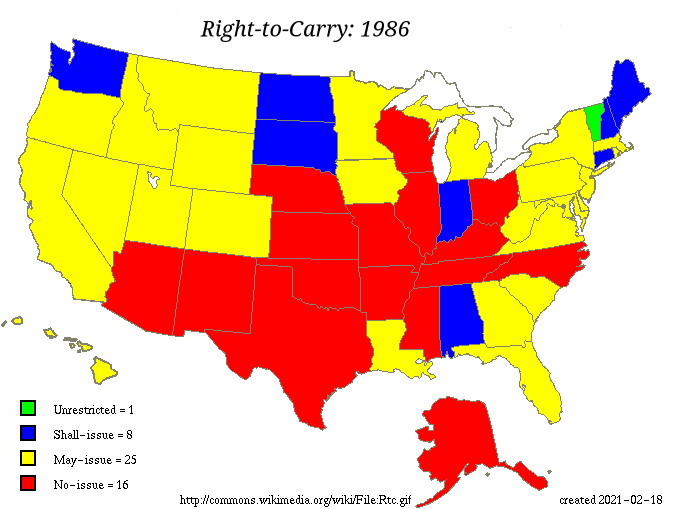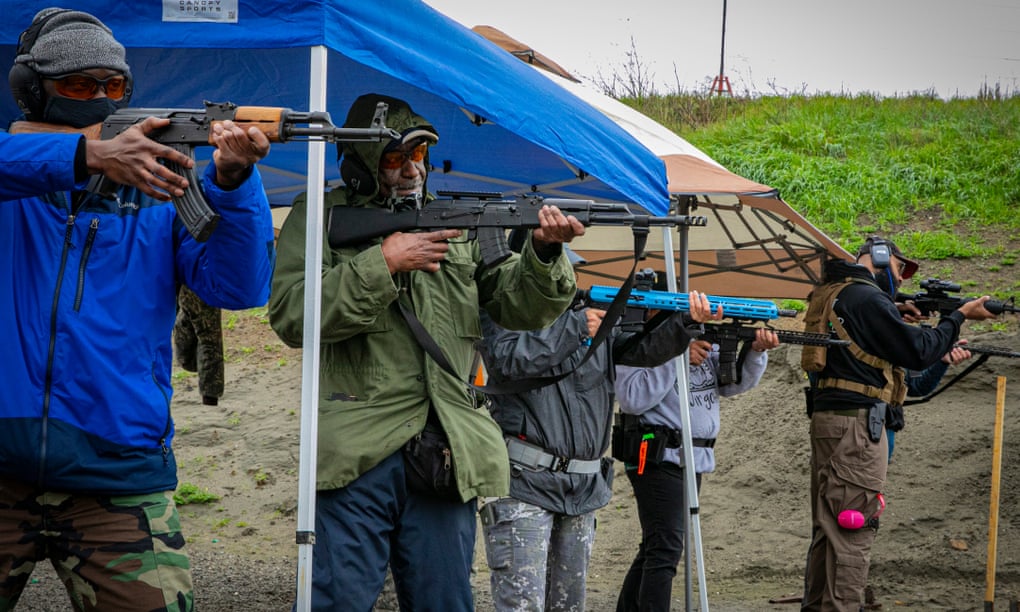SaintButter wrote:One part that strikes me is that it says the right "shall not be infringed." This follows the language of the Declaration of Independence and other amendments in that the law doesn't grant you this right.
I agree; the wording of the 2ndA presupposes the existence of the right. It is recognizing and securing a right that was already possessed by the people and retained by them, without conditioning or qualification.
SaintButter wrote:That also gets into the debate concerning what is a militia.
There are actually three militias in foundational American Constitutional theory.
First is the "people at large", those citizens capable of bearing arms, considered by Madison to be 25% of the population; a subset are those citizens "with arms in their hands". Understand, these are
private citizens, the "people" that the 2nd Amendment protects. Madison said those armed citizens would outnumber (opposed was the word he used) the nation's standing army by a ratio of 17 armed citizens for each soldier (
Federalist 46).
Second are those men who are deemed liable to perform militia duty
under law and obligated to enroll (and provide themselves an appropriate firearm). In the
Militia Act of 1792, this was "each and every free able-bodied white male citizen . . . who is or shall be of age of eighteen years, and under the age of forty-five years". This is the "organized" militia of Art I, §8, cl's. 15 & 16; nothing they do as enrolled militia members is considered a "right", it is all, every bit of it --even arming themselves-- directed by law. They are not "the people" protected by the 2nd Amendment
or even the 5th Amendment; if in actual service and they commit a crime, they do not enjoy 5th Amendment protection, they are prosecuted under the UCMJ.
The
third militia are "such part of" a state's militia employed in the service of the United States. It is those militia who are "governed" by Congress and has the President as Commander in Chief.
SaintButter wrote:The point of this is that almost everyone interprets the second amendment how they want to interpret it, and almost no one says I agree with your interpretation; I think it should be changed (not even gonna get into courts legislating via interpretation). . . . But I feel like even a modest level of gun control is counter to the spirit of the second amendment.
But now you are caught in a dichotomy. If the right pre-exists the Constitution, it can't be said to be granted by the words of the 2nd Amendment thus the right is in no manner dependent on the Constitution for is existence. Accepting
that you are forced to accept that altering the words or even completely removing the 2nd Amendment would not alter or extinguish the right to arms, anymore than removing Newton's law of universal gravitation from physics books would alter or eliminate gravity (too bad, think how many lives could be saved if nobody ever died from falling!).
SaintButter wrote:Additionally, the second amendment doesn't take more dangerous modern firearms into account since they didn't exist.
"We the People" don't possess the right to keep and bear arms because the 2nd Amendment is there or what it says we are 'allowed' to have . . . "We the People" possess he right to arms because "We the People" never conferred any power in the Constitution to allow the federal government to have any interest in the personal arms of the private citizen.
All the 2nd Amendment "does" is redundantly forbid the federal government* to exercise powers it was never granted.
*and now state governments, see
McDonald v Chicago, (2010)
SaintButter wrote:Therefore, the second amendment should be repealed or at least amended.
That attempt would bring about some interesting, enlightening debates. The first
fatal one would be, do the constitutions of the states even allow their legislatures (or delegates chosen by government officials) to surrender the right to arms of their citizens to the federal government?
I believe my state (Pennsylvania) would be forced to hold its own constitutional convention to give the state government the power to even consider a proposed federal amendment relinquishing the rights of state citizens.
The PA constitution calls out the rights of the citizens before a single power is granted. Article I, Section 21 would need to be repealed and then Section 26 before the state legislature (or any delegates designated by any officer of state government) can consider surrendering PA citizen's right to arms to the federal government, repealing the 2nd Amendment.
[list=]Art I, §21: "The right of the citizens to bear arms in defense of themselves and the State shall not be questioned."
Art I, §26: "To guard against the transgressions of the high powers which we have delegated, we declare that everything in this article is excepted out of the general powers of government and shall forever remain inviolate."[/list]
Just as a matter of politics, the thought that 38 states would ratify altering or removing the 2nd Amendment is fantasy. Iowa will (in July 2021) join the green states in the map below, becoming a "constitutional carry" state; no permit is required to carry a gun concealed for personal self defense.

















 - By Rich
- By Rich - By JohnRawls
- By JohnRawls